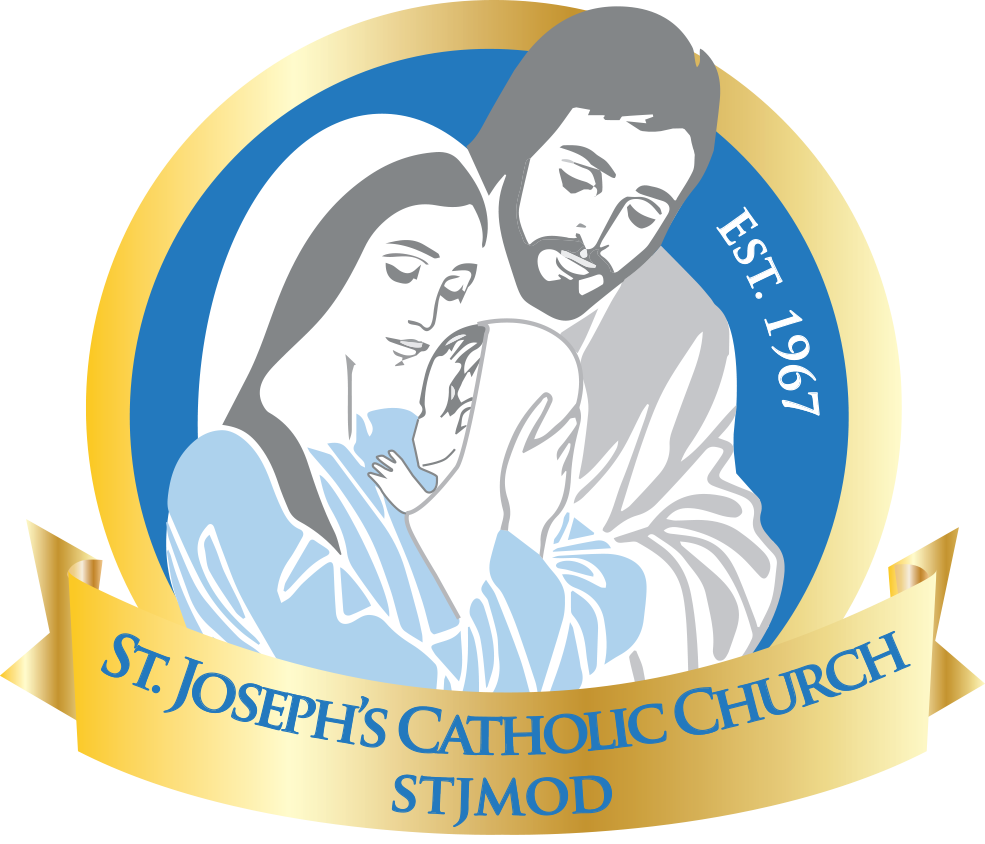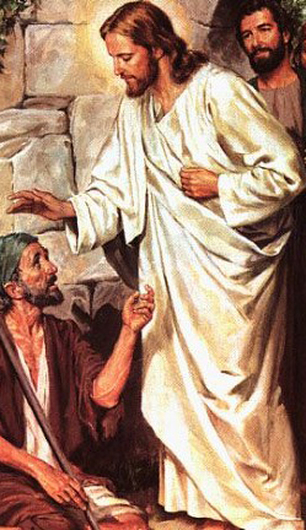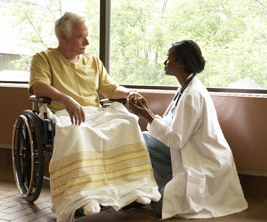Anointing of the Sick
Joined to Christ, Witnesses of Hope and Healing
|
Anointing of the Sick is the sacrament that is received by those who are ill or suffering. By the sacred anointing and the prayer of the priest, the whole Church commends those who are sick to Christ. The sick person receives the Holy Spirit’s gifts of strength, faith, peace, and courage, and his or her suffering is united with the suffering of Christ for the building up of the Church ( Catechism of the Catholic Church [CCC], nos. 1520-23). Through the Sacrament of Anointing of the Sick, the Church carries out Jesus’ mission of compassion and healing for the sick. The one who is ill can also be a minister to others. By uniting their suffering to Christ, those who are sick can be signs of faith and witnesses of Christ’s Resurrection to the entire community (Pope John Paul II, Christifideles Laici [ The Vocation and the Mission of the Lay Faithful in the Church and in the World ], no. 54)
|
A Communal Celebration
The Sacrament of Anointing of the Sick is both “a liturgical and a communal celebration.” In the family home, hospital, or church, members of the Body of Christ gather for the sacramental rite led by a priest. The Penitential Rite followed by the Liturgy of the Word and sacramental anointing of the sick can inspire and comfort both those who are ill and their family and friends who are gathered (CCC, nos. 1517-18). Many parishes have communal celebrations at which many persons receive the sacrament. These sacramental celebrations are a “source of strength amid pain and weakness, hope amid despair” and a “joyful encounter” for the entire community ( Christifideles Laici , no. 54).
Connection to the Communion of Saints
Anointing with sacred oil is a sign of blessing by the Holy Spirit of the one who is sick. Oil of the Sick, which receives a different blessing from the Chrism oil used during Baptism, Confirmation, and Holy Orders, recalls the community’s sharing of the Holy Spirit and the sick person’s connection to the entire Body of Christ and Communion of Saints.
Imitation of Christ’s Compassion
|
In the Gospels, Christ’s great compassion toward the sick is expressed in the miraculous healings he performs, which heal the entire person, both body and soul. Parables such as the Good Samaritan (Lk 10:29-37) and the Judgment of the Nations (Mt 25:31-46) urge Christ’s followers to share his ministry of compassion and healing and to imitate his “preferential love for the sick” and all who suffer (CCC, nos. 1503, 1506; Pope Benedict XVI, Sacramentum Caritatis [ Sacrament of Charity ], no. 22)
|
Solidarity with All Who Suffer
We care for the sick because we see them as children of God and part of our human family. When one part of the Body of Christ suffers, we all suffer (1 Cor 12:26). The suffering of one impacts everyone. Thus, we are called to solidarity, which is responsibility on the part of everyone with regard to everyone (Pope John Paul II, Sollicitudo Rei Socialis [ On Social Concern ], no. 38; Pope Benedict XVI, Caritas in Veritate [ Charity in Truth ], no. 38). By our compassion, we remind those who are sick that “[the Church] shares your suffering. She takes it to the Lord, who in turn associates you with his redeeming Passion” (Synod of Bishops, Per Concilii Semitas ad Populum Dei Nuntius , no. 12). We are called to comfort, pray for and with, and be in solidarity with all who are sick or suffering. Caring for those who suffer is not a burden, but a gift. Those who care for the sick do holy and important work; they walk with Christ’s suffering people and in doing so, serve Christ himself (Mt 25:31-46). Those who minister to the sick and who work to secure decent health care for all become “the living sign of Jesus Christ and his Church in showing love towards the sick and suffering” (Christifideles Laici, no. 53).
Union with Christ’s Passion
While it is possible that the sacrament could bring physical healing, Anointing of the Sick is primarily about the healing of hope and of the spirit. Above all, the sacrament allows the person who is ill to unite more closely to Christ’s Passion. This gives suffering a new meaning: a participation in the saving work of Jesus. This is a powerful witness that is for the good of the whole Church (CCC, nos. 1521-22).
Beacons of Hope
Pope John Paul II wrote, “Even the sick are sent forth as laborers into the Lord’s vineyard” ( Christifideles Laici , no. 53). As the sick unite their sufferings to those of Christ, they become bearers of the joy of the Holy Spirit in the midst of affliction and witnesses of Christ’s Resurrection. Anointing of the Sick testifies to the fact that all are called to participate in the redemption of the world ( Sacramentum Caritatis , no. 22). We all have a role in sanctifying and building up the Church, whatever our physical condition. As the Synod of Bishops told an audience of sick and suffering persons, “We need you to teach the whole world what love is” ( Per Concilii Semitas ad Populum Dei Nuntius , no. 12).
A Witness to Dignity
|
The sacrament reminds us that each person is made in the image of God and has dignity that remains unchanged, whatever the body suffers. The ministry of those who are sick is a powerful witness to the fact that human dignity is intrinsic and does not increase or decrease based on a person’s physical state or abilities. This is why the Church works to protect the life and dignity of the person at every stage of life—the embryo, the person suffering from AIDS, the family in poverty, and the person nearing death—and why she works to secure access to decent health care for all.
|







